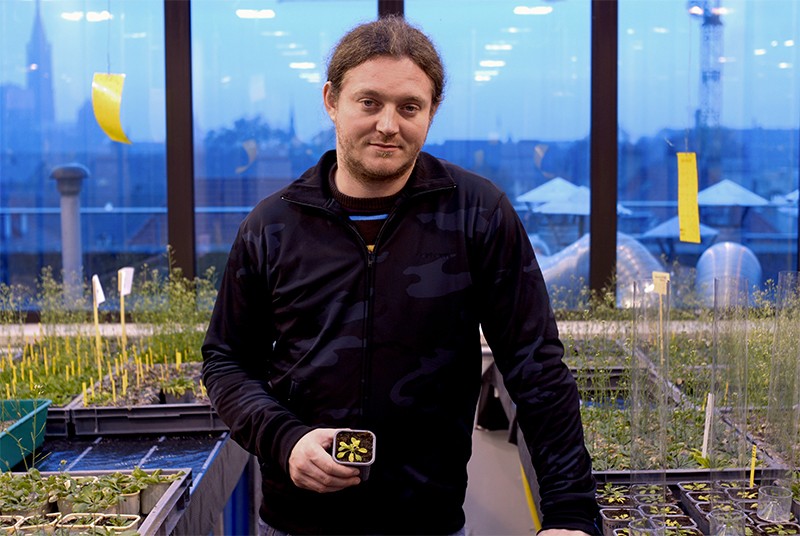과학의 권력화 때문일까요, 아니면 과학의 한 특징인 선취권 때문일까요? 또 하나의 데이터 조작 사례에 관한 Nature 뉴스입니다.
(원문: 여기를 클릭하세요~)
Investigation turns up evidence of misconduct in publications from troubled French laboratory.
A fresh investigation into publications from a French plant-biology laboratory has revealed “severe” and “intentional” manipulation of research figures. No one has yet been named as responsible for the misconduct, but the institute that led the investigation is expected to announce disciplinary measures by the end of September.
The inquiry — led by France’s national research council, the CNRS, with the participation of the Swiss Federal Institute of Technology Zurich (ETH Zurich) — investigated five molecular-biology articles from researchers at the CNRS Institute of Plant Molecular Biology in Strasbourg, France. The now-defunct lab was renowned for its work on how a gene-silencing technique called RNA interference helps plants, invertebrates and mammals to combat viruses.
The CNRS and ETH Zurich have drawn independent conclusions about their respective staff members on the basis of the full inquiry report, which itself has not yet been made public. But so far, only ETH Zurich has revealed its conclusions. In a statement on 6 September, the institute said that the investigation found negligence, errors and evidence of intentional manipulation of figures in the five studies that amounted to misconduct.
The statement said that no ETH staff members — who were co-authors of four of the papers — were personally involved in the manipulations, including Olivier Voinnet, a former leader of the lab and a prominent CNRS scientist who has been on secondment to ETH Zurich since 2010. “Voinnet did not perform, order or scientifically endorse such manipulation,” says the statement. “This finding is crucial for assessing the case,” said Detlef Gunther, vice-president for research and corporate relations at ETH Zurich.
The statement notes the investigation found that there was no clear scientific advantage in manipulating the figures, so the motivation behind the alterations is still unclear.
But ETH Zurich did conclude that as group leader, Voinnet bore overall management responsibility, and so it has extended an existing probation relating to a 2015 investigation into papers co-authored by Voinnet for similar concerns. When the two institutions launched the latest investigation in 2016, ETH Zurich spokesperson Vanessa Bleich told Nature that the French scientist would not be at the centre of the inquiry.
Voinnett told Nature that he would like to speak about the investigation and its outcomes, but would prefer to wait until the CNRS makes its conclusions about the inquiry public.
Julien Guillaume, a CNRS spokesperson, says that the agency is still working on disciplinary procedures from its interpretation of the report, and that it will make its conclusion public by the end of the month. These may include new sanctions at the CNRS, he says.
Plant biologist Olivier Voinnet.Credit: Pascal Bastien/Divergence-Images
Seeds of suspicion
The investigation is the latest twist in a long-running saga. The lab has published many high-profile plant-biology studies — several of which have since been retracted or corrected.
In early 2015, the group’s work attracted the attention of PubPeer, an online forum that allows users to comment anonymously about research articles. Some commenters on the site raised questions about figures in the lab’s publications.
Those concerns prompted separate investigations that year by the CNRS and ETH Zurich into articles co-authored by Voinnet.
Both institutes reported their independent conclusions simultaneously in July 2015. The CNRS said that figures had been deliberately manipulated, in breach of ethical standards for presenting scientific results. It found no evidence of data fabrication, but it nonetheless said that Voinnet was responsible for research misconduct — in part because the manipulations “tarnished the reputation of the CNRS”. The agency suspended him from the organization for two years. Another member of the lab, Patrice Dunoyer, received a 12-month expulsion, with 11 months assigned as a suspended sentence.
By contrast, the executive board of ETH Zurich ruled at the time that the figure manipulations did not constitute misconduct by Voinnet, although it did reprimand him for shortcomings in his supervision of the lab and its handling of figures. It also found that the papers’ scientific conclusions were fully substantiated by the raw data. The institution put him on probation for five years, a sanction that it has now extended — on the same grounds — until 2023.
The Swiss institute says that the latest probe was instigated at the initiative of Voinnet, after he carried out his own in-depth investigation in summer 2016 into the group’s papers — a contribution praised by the institution. He raised the possibility of more-serious data fabrication than had been found in 2015 . He reported to ETH Zurich that he had discovered evidence of serious data fabrication not only in figures, but also in corrections made to papers.
ETH Zurich then requested that CNRS join it to carry out a fresh investigation into the lab’s work, focusing on a selection of papers that it identified as problematic.
